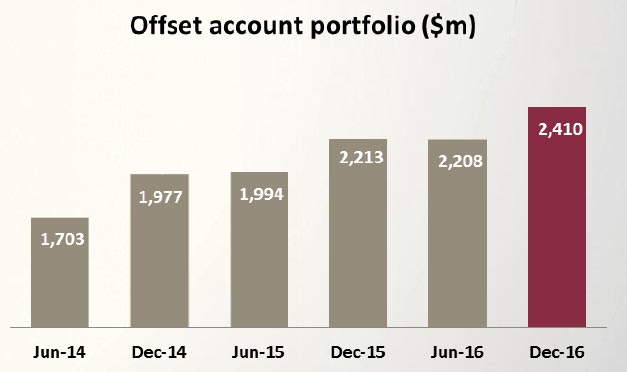Bendigo and Adelaide Bank released their 1H17 results today. Regional banks continue to feel the pressure of low interest rates, competition for deposit funding, and home loan demand. The overall result, once you look at it, is pretty weak. It was more to do with cost control and reduced provisioning than margin growth, even if on higher volumes.
Their cash earnings were up 0.4% from 1H16 to $224.7m, and the statuary net profit was $209m, little changed from 1H16. Return on equity was 8.77%, down from 9.10% in IH16. Return on tangible equity was 12.63% down from 13.15% IH16 and 12.71% 2H16. The dividend was held at 34c, with a payout ratio of 70.8%.
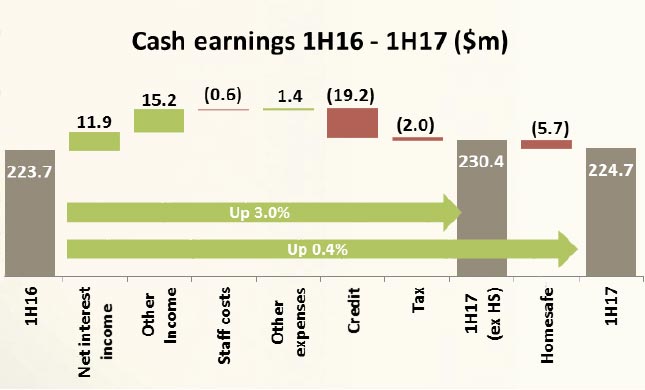 Whist total assets were up by 3.5% on 1H16 to $70.9b, net interest margin dropped 6 basis points to 2.1%. It may be recovering a little now thanks to repricing of loans but volume may be slowing as a result. Home lending was 70.6% of loans. They are close to the 10% investment lending speed limit, so that will also trim growth.
Whist total assets were up by 3.5% on 1H16 to $70.9b, net interest margin dropped 6 basis points to 2.1%. It may be recovering a little now thanks to repricing of loans but volume may be slowing as a result. Home lending was 70.6% of loans. They are close to the 10% investment lending speed limit, so that will also trim growth.
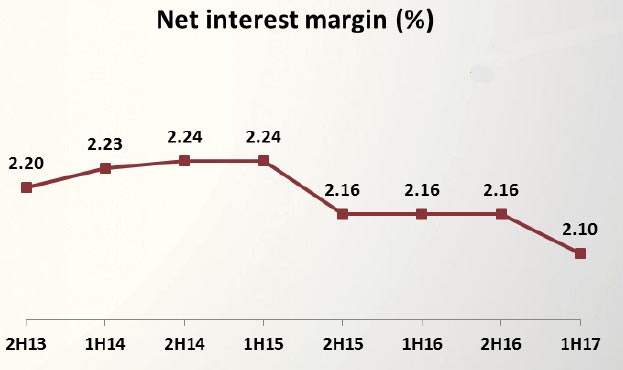 The expenses ratio improved, as shown by the Jaws momentum.
The expenses ratio improved, as shown by the Jaws momentum.
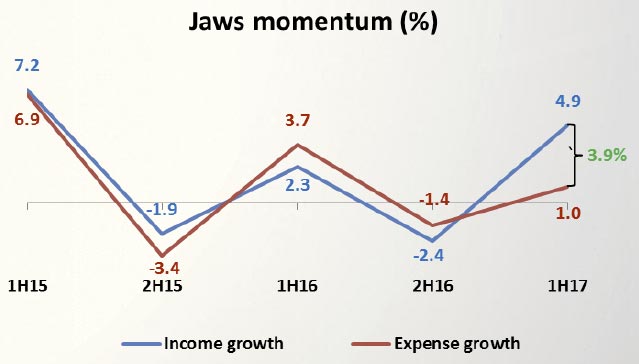 The Keystart loan acquisition meant their mortgage lending book grew 13.9%, but 6.8% excluding the acquisition. Residential loan approvals rose, including via third party channels, but broker loans seem to be slowing post the recent repricing.
The Keystart loan acquisition meant their mortgage lending book grew 13.9%, but 6.8% excluding the acquisition. Residential loan approvals rose, including via third party channels, but broker loans seem to be slowing post the recent repricing.
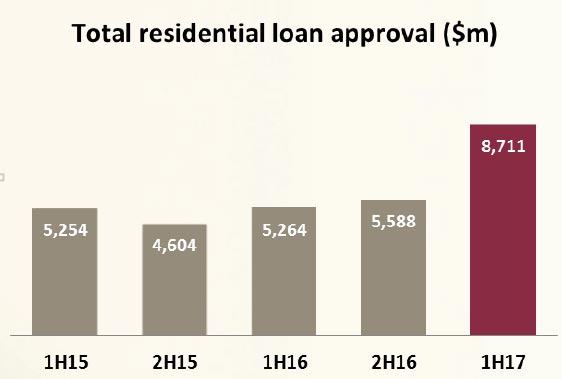 There was a 9% growth in offset portfolio loans since December 2015. They say 45% of home loan customers are ahead with their minimum repayments. 29% of customers are 3 or more repayments ahead. Loan settlements are running at around $1.5m a month.
There was a 9% growth in offset portfolio loans since December 2015. They say 45% of home loan customers are ahead with their minimum repayments. 29% of customers are 3 or more repayments ahead. Loan settlements are running at around $1.5m a month.
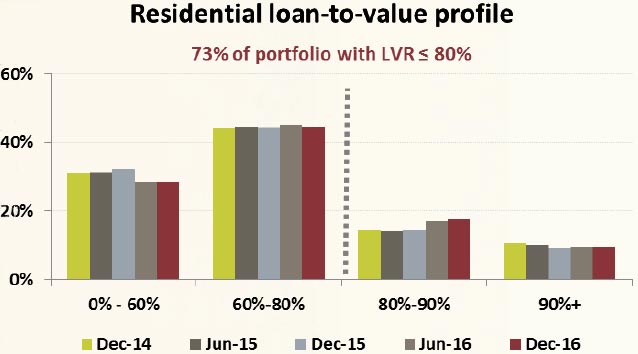 The Bank benefited from rising property values in its Homesafe portfolio and remains sensitive to future price growth. They added (only) $2.5m of overlay in 1H17 increasing the total overlay to the value of the portfolio to $26.1m. Given the strong price growth in Sydney and Melbourne this seems low!
The Bank benefited from rising property values in its Homesafe portfolio and remains sensitive to future price growth. They added (only) $2.5m of overlay in 1H17 increasing the total overlay to the value of the portfolio to $26.1m. Given the strong price growth in Sydney and Melbourne this seems low!
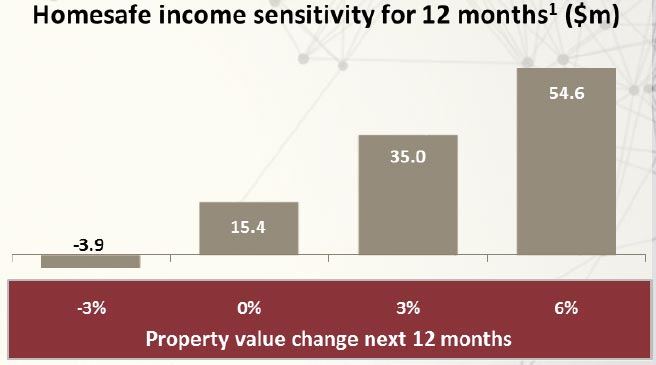 BDD were controlled, but residential arrears are rising a little. Great Southern is paying down as expected.
BDD were controlled, but residential arrears are rising a little. Great Southern is paying down as expected.
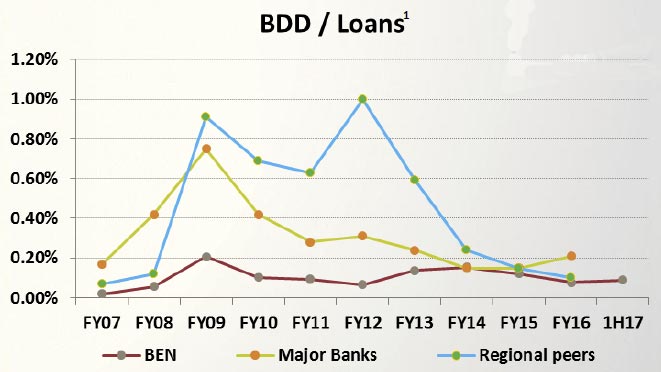 Bad debt provisions fell, partly thanks to a specific and large named, but now resolved risk.
Bad debt provisions fell, partly thanks to a specific and large named, but now resolved risk.
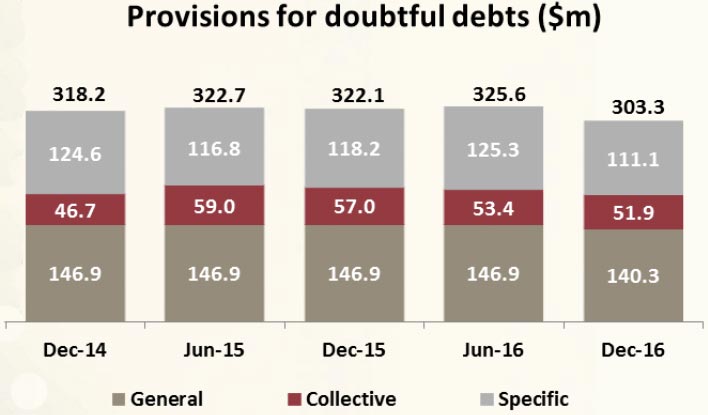 Capital remains under pressure, with CET1 down to 7.97%. The move to advanced IRB (timing TBA) might help a bit, possibly.
Capital remains under pressure, with CET1 down to 7.97%. The move to advanced IRB (timing TBA) might help a bit, possibly.
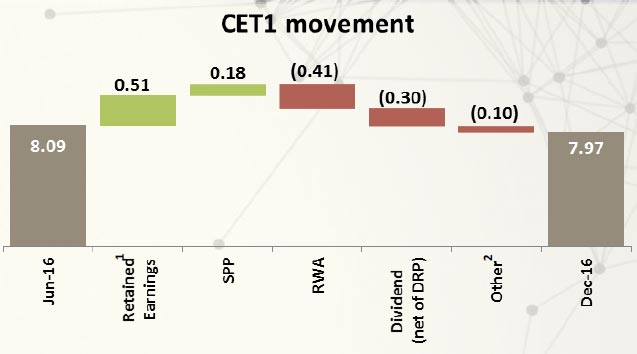 All in all, they had to squeeze the lemon harder to drive a reasonable outcome, but we question whether the fundamentals are there for long-term sustainable and growing shareholder returns.
All in all, they had to squeeze the lemon harder to drive a reasonable outcome, but we question whether the fundamentals are there for long-term sustainable and growing shareholder returns.

